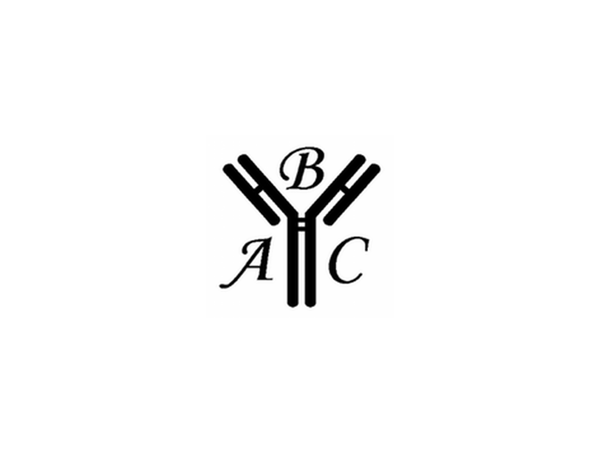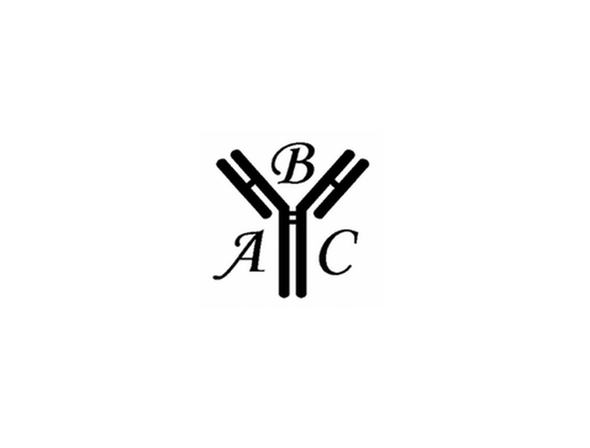Description
Biotinylated Goat Anti Carbamyl-lysine | ABMC-B17
| Host Species: | Goat |
| Concentration: | 1 mg/ml (OD 1.35 / 280 nm) |
| Antigen: | CBL-KLH |
| Purification: | Affinity purified |
| Buffer: | 75 mM Sodium Phosphate, 75 mM NaCl, 0.5 mM EDTA, 0.02% NaN3, pH 7.2 |
| Specificity |
Specifically binds to CBL. Dilution for immunoblot and ELISA range: 1,000 to 8,000. (A slight amount of precipitation may have occurred during storage due to the natural properties of these antibodies; please centrifuge before use.). |
| Use: |
The antibody can be used for detection of Carbamylation in plasma, lipoproteins, and other CBL containing proteins, using for immunoassays, immunoblots, enzyme conjugation, or biotinylation. |
| Storage: | -20°C for long-term storage, 4°C for short- term storage. Aliquot to avoid repeated freezing and thawing. |
| Form: | Freeze dried powder |
| Stabilizer: | 10 mg / ml Bovine Serum Albumin. |
|
Reconstitution and Storage: |
Freeze-dried product should be stored refrigerated until opened. After opening, restore to suggested ml volume with distilled water. If it is not completely clear after standing for 1-2 hours at room temperature, centrifuge the product. It is stable for several weeks at 4°C as an undiluted liquid. Do not use for more than one day after dilution. For extended storage after reconstitution, we suggest aliquot to avoid repeated freezing and thawing; or the addition of an equal volume of glycerol to make a final glycerol concentration of 50%, followed by storage at -20°C. The concentration of protein and buffer salts will decrease to one-half of the original after the addition of glycerol. |
*These products are for research or manufacturing use only, not for use in human therapeutic or diagnostic applications.
IMPORTANCE
Carbamylation is a spontaneous nonenzymatic modification of proteins and amino acids by urea-derived isocyanate, which is generally present in human serum and is increased in uremic patients (Kraus and Kraus, 2001).
Proteins carbamylated at lysine or the terminal protein amino acids may play an important role in Chronic renal failure subjects in the development of atherosclerosis and cardiovascular diseases (Raine et al., 1991; Culleton et al., 1999).






